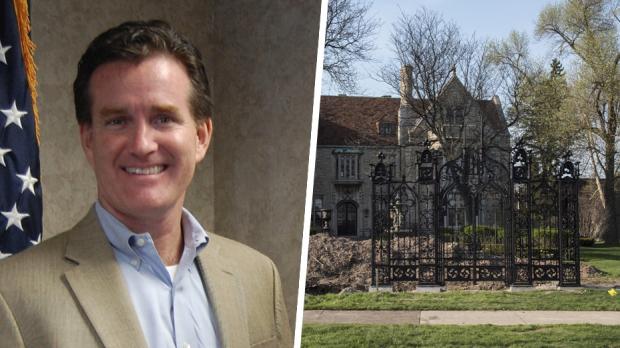The Public Record: Buffalo Sewer Authority, Buffalo Ugly, Succeeding Skelos
What’s $1.8 million between friends? We were astonished when, in March, a friend told The Public that the Buffalo Sewer Authority pays the City of Buffalo $1.8 million each year for—well, we’re not sure for what. That initial source said the money represented rent for the authority’s offices in City Hall, but that made little sense: That would be the most expensive low-grade office space in downtown Buffalo. (Iconic address, to be sure, decent wi-fi, but scary elevators and sketchy phone service.) So we checked it out with some folks in City Hall who follow municipal finances. It’s true, they told us, more or less: Each year the Buffalo Sewer Authority pays the city something in the range of $3.5 million. Some of that money is for services rendered to the authority by the city—payroll processing, billing, IT services, etc. However, a significant amount—ranging in recent years from $1.4 million to $2 million, and budgeted most recently at $1.8 million—is not itemized. The money just goes to the city’s general fund. It feels, another source told us, like the administration uses the Buffalo Sewer Authority as an ATM, taking money at will to plug holes in its budget.
Many have speculated that Common Councilman Dave Franczyk, long of the Fillmore District, might finally retire this year, rather than seek a new term in the fall. Perish the thought. Franczyk is campaigning. So far he faces at least two declared candidates: East Side activist Sam Herbert and Buffalo Municipal Housing Authority tenant commissioner Joe Mascia. Both have had trouble in the past collecting enough valid signatures on nominating petitions to make the primary ballot. Others are sniffing around the race too, but the more the merrier for Franczyk: A primary with multiple candidates favors the incumbent in this case.
We have also heard that the Buffalo school board member Jay McCarthy may not challenge Delaware District Councilman Mike LoCurto this fall, as he had indicated he would. McCarthy faced some significant hurdles besides the natural advantages that accrue to LoCurto as an incumbent: He is a member of a school board majority that is perceived to be at odds with the teachers union, whose members are active in Democratic primaries both as voters and campaigners.
A challenger to South District Councilman Chris Scanlon may arise but no organized faction in that district is backing such a candidate now. For better or for worse, then, expect few strong challenges to any incumbents on the Common Council and a relatively quiet primary season in the city.
Reports on a garish fence under construction around the historic Miller mansion on Nottingham Terrace have elicited some spirited back-and-forth on various websites in the last week, including dailypublic.com, where Public editor-at-large Bruce Jackson calls it “Buffalo Ugly.” Jackson also dug up a salient record on the city’s website: The owner of the property obtained a permit for an eight-foot fence. The fence under construction is far higher than eight feet tall, even without the ornamentation above the gates.
So, Republicans in the New York State Senate have chosen John Flanagan, a senator from Long Island’s Suffolk County, to succeed Dean Skelos, a senator from Long Island’s Nassau County, as majority leader, following Skelos’s resignation on Monday. Skelos and his son, Adam, surrendered to federal authorities last week, accused of corruption.
For those who had imagined that the removal of Skelos presented an opportunity for upstate and Western New York to assume some leadership role in the Senate, check a map: Suffolk County is in fact slightly farther removed from the west coast of New York State than Nassau County. All that has been gained through this scandal is the removal of a longtime, apparently corrupt incumbent from his leadership role (but not yet from his seat in government), and the ascension of another longtime, as yet unindicted incumbent to that leadership role.
(Flanagan has been a legislator since 1986, when he won an Assembly seat vacated by his father, who died of a heart attack at age 50. In this regard his story resembles that of Buffalo’s Sam Hoyt, who assumed the Assembly seat of his father, Bill, who died in office of a heart attack in 1992.)
On Tuesday morning, Flanagan pretended that there was no regional divide in the state or in his party. “From my standpoint, the fact that I’m from Long Island has no bearing,” he said. “I’m a colleague in the state Senate. What’s good for Jamestown, what’s good for Plattsburgh or Glens Falls or Utica or Syracuse or Rochester is good for the state of New York.”
Sure, whatever. Meet the new boss. Onward and sideways.

